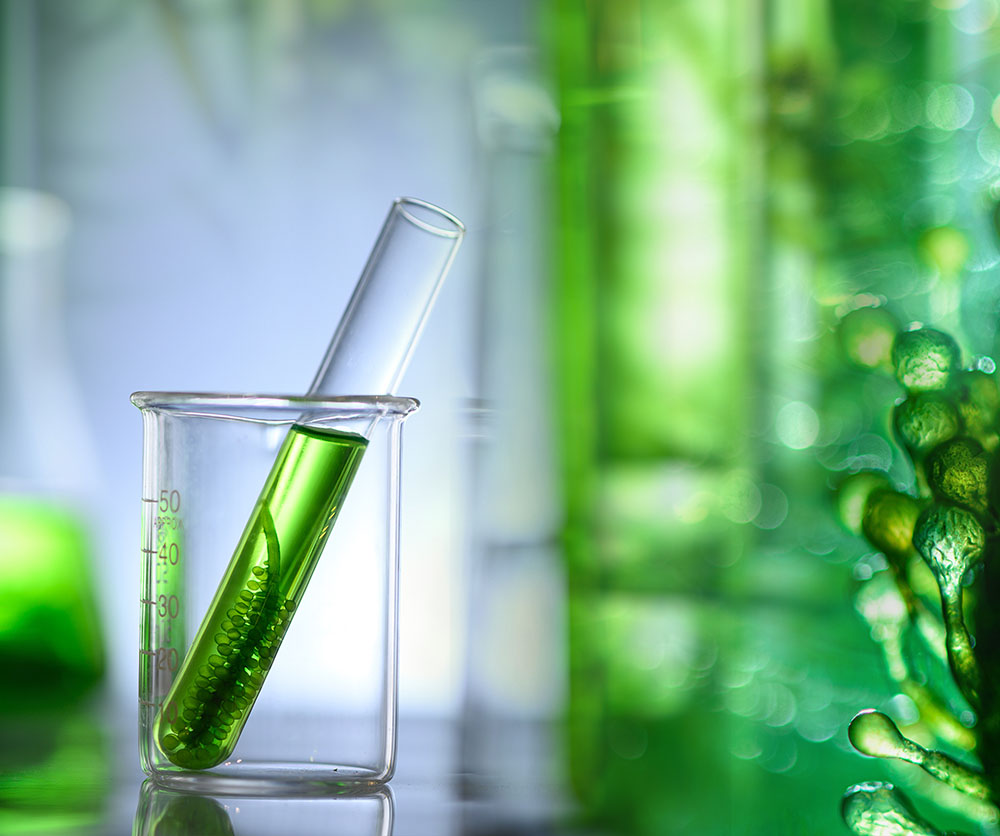Project title:
Utilisation of wastewater for the cultivation of macroalgae and its use to produce biodiesel and fish feed supplements
Acronym:
Alga4Fuel&Aqua
Project Code:
Τ1ΕΔΚ-01580
Project Coordinator:
GRINCO ABEE, Biomar AE

The Alga4Fuel&Aqua project aims to:
Global primary energy reserves are steadily declining and the use of fossil fuels as the main source of energy contributes to global warming. With the urgent need to find environmentally friendly energy sources, 2nd generation biofuels, such as those produced from microalgae, seem to be a promising alternative.
On the other hand, as far as food production is concerned, aquaculture is a dynamic sector that is constantly being intensified and developed. As a result, there is an ever-increasing demand and need to increase the production of fish feed. Fish oils and fishmeal are currently the main source of omega-3 fatty acids and proteins, respectively, used in fish rations. However, their availability has been stagnant for 3 decades and their cost is constantly increasing, while there are strong concerns about the limitation of these natural resources caused by fish farming. Microalgae are a promising alternative source of omega-3 fatty acids and proteins in fish feed.
the use of liquid waste (glycerol waste from biodiesel production and effluents from anaerobic treatment of agricultural and livestock waste) for the heterotrophic cultivation of microalgae to be used by industry for the production of (1) biodiesel and (2) fish feed
minimizing waste to the environment
linking academic research on waste utilization, microalgae production, biodiesel, and fish feed with market needs and the economy, through the creation of a collaborative network that is expected to enhance the competitiveness and productivity of businesses towards sustainability.
The project is in line with the European Parliament's directive that the production of 2nd generation biofuels and the phasing out of 1st generation biofuels should be promoted.
The project innovations include: (a) the cyclical use of glycerol-microalgae-microalgae-bionitrile-glycerol waste to produce 2nd generation biofuels and (b) the use of sustainably and innovatively produced microalgae in the feeding of farmed fish.
The research questions are topical and consider the strong research and business interest in microalgae and the needs for utilization of the waste for energy production and product sources of fats and proteins in fish feed.
Global primary energy reserves are steadily declining and the use of fossil fuels as the main source of energy contributes to global warming. With the urgent need to find environmentally friendly energy sources, 2nd generation biofuels, such as those produced from microalgae, seem to be a promising alternative.
On the other hand, as far as food production is concerned, aquaculture is a dynamic sector that is constantly being intensified and developed. As a result, there is an ever-increasing demand and need to increase production.


